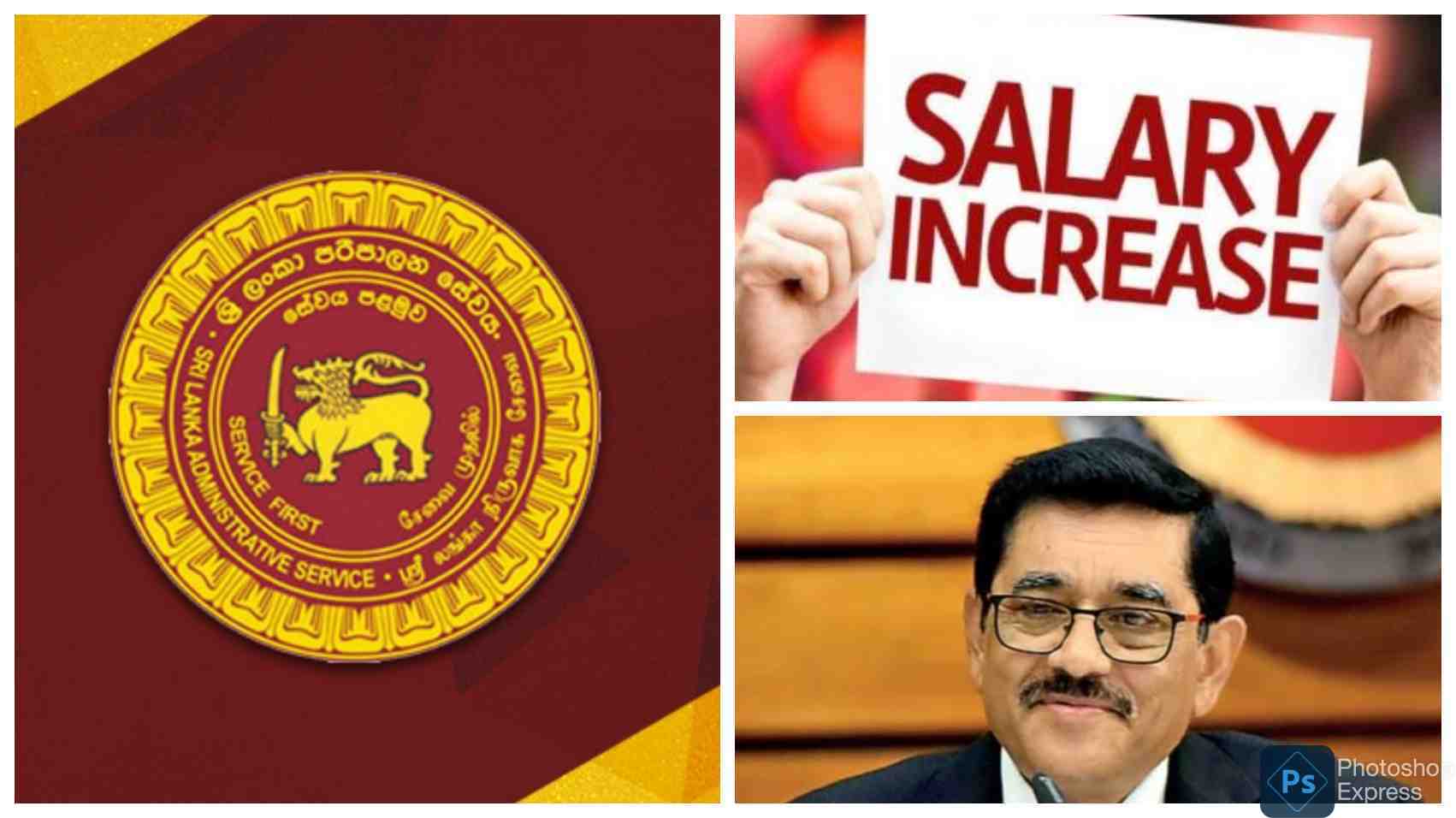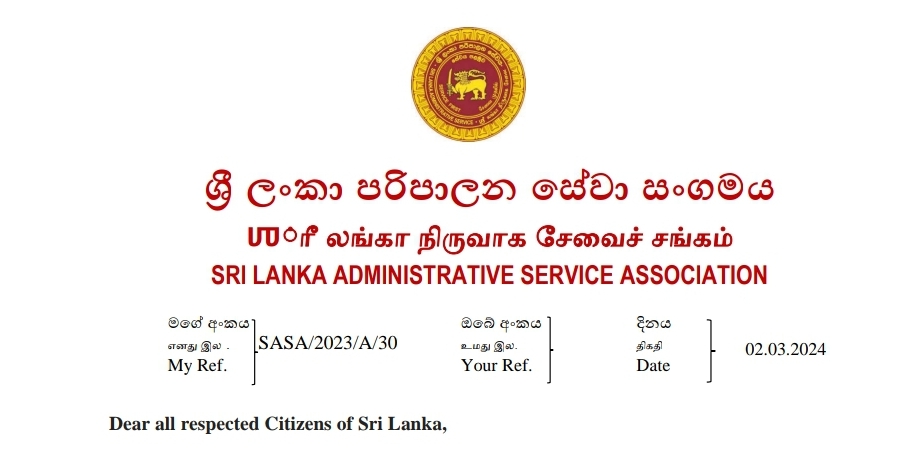
Sri Lanka Administrative Service Association (SASA), the trade union of the Sri Lanka Administrative Service officers has issued the following statement over the Central Bank’s decision to increase salaries for them.

Dear all respected Citizens of Sri Lanka,
With all due respect, we’d like to raise some points that haven’t been addressed in conversation that had between Dr. Nandalal Weerasinhe and Mr. Jayantha Kovilgodage.
Central Bank officials should have a broader understanding than just economics. Their education should encompass social sciences like sociology, peace and conflict studies, and human behavior to better grasp the societal implications of their decisions.
The current decision-making process, lacking this broader understanding, risks perpetuating social unrest. This recent incident, brought to light by social media, exemplifies this concern.
The Central Bank of Sri Lanka, meant to be a professional body supporting policymakers, has unfortunately contributed to the current economic situation, impacting other social development indicators.
Confined within their own environment, Central Bank professionals might rely solely on data,neglecting the human factor. This approach stands in stark contrast to other government services directly interacting with citizens and experiencing the real consequences of policy decisions.
It’s important to consider historical context. In 1978, salaries of similar-graded officials of SLAS, Central Bank and State Owned Enterprises (SOEs) were comparably similar level.
However, a policy change implemented by a former Central Bank official, who later became the Treasury secretary, allowed SOE salaries to be renegotiated every three years through collective bargaining.
This policy set a precedent for the Central Bank to increase its own salaries, contributing to a drain of non-taxable income from SOEs that previously flowed into the national treasury.
Another former Central Bank official who served as Treasury secretary prioritized unnecessary public service recruitment over salary increases. His belief that financial bookkeeping alone could manage societal issues proved shortsighted. He also received two pensions, further burdening the nation.
Therefore, we urge the Governor of the CBSL to consider not just market rates but also the broader social and moral implications of your decisions.
The market and social conditions are intricately linked. While CBSL officials, like all citizens, are consumers, their access to resources and infrastructure funded by public taxes differs. It’s crucial to recognize this disparity.
Neuroscience tells us that the prefrontal cortex, responsible for executive functions, also plays a role in decision-making and morality.
Additionally, early childhood experiences significantly impact moral development.
By neglecting these factors, CBSL risk fostering a nation of dissatisfied citizens, with negative consequences impacting future generations who will bear the cost of these decisions.
We hope this comprehensive perspective encourages a more holistic approach to decision-making,ensuring the well-being of both the economy and society as a whole.